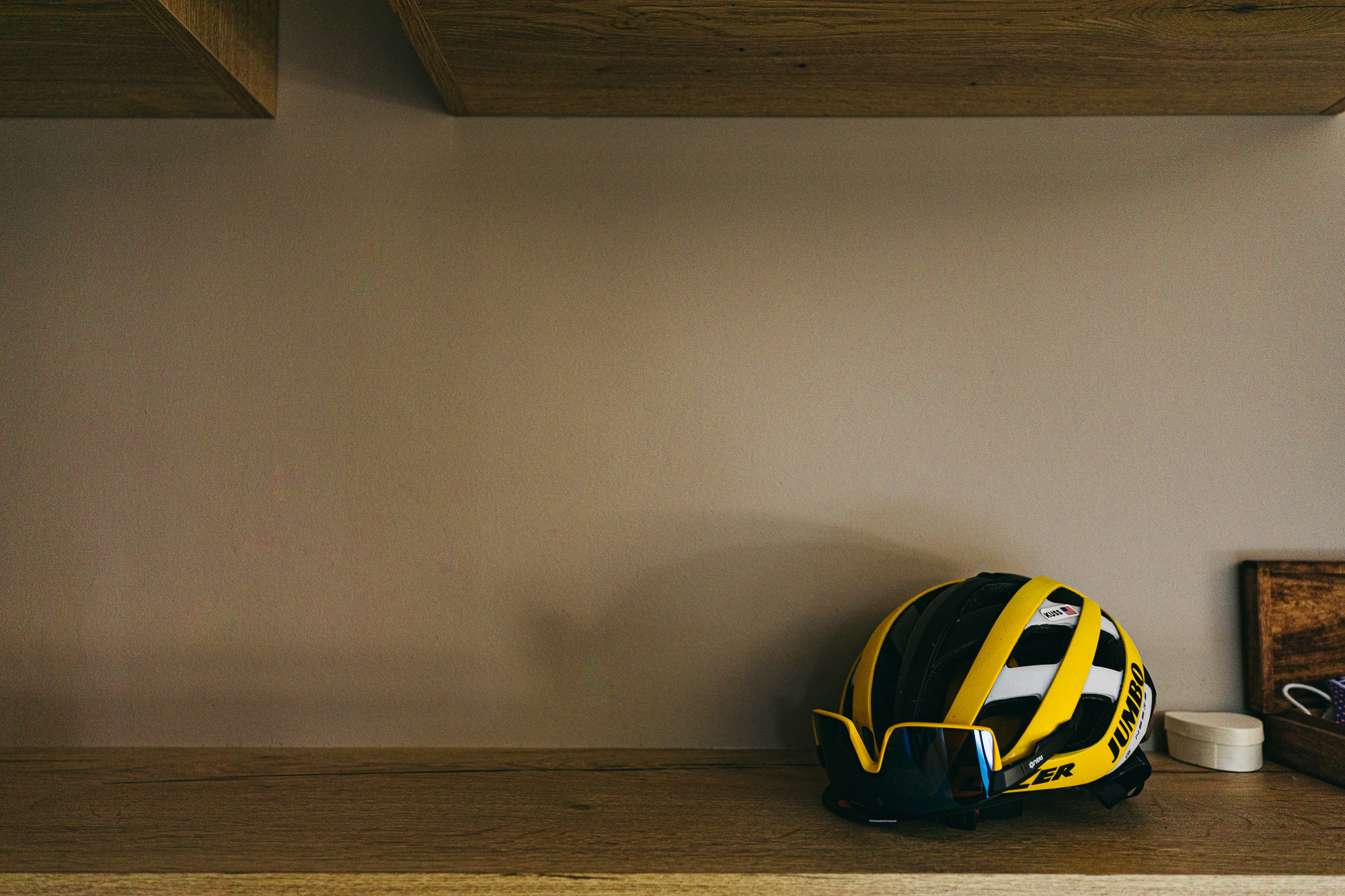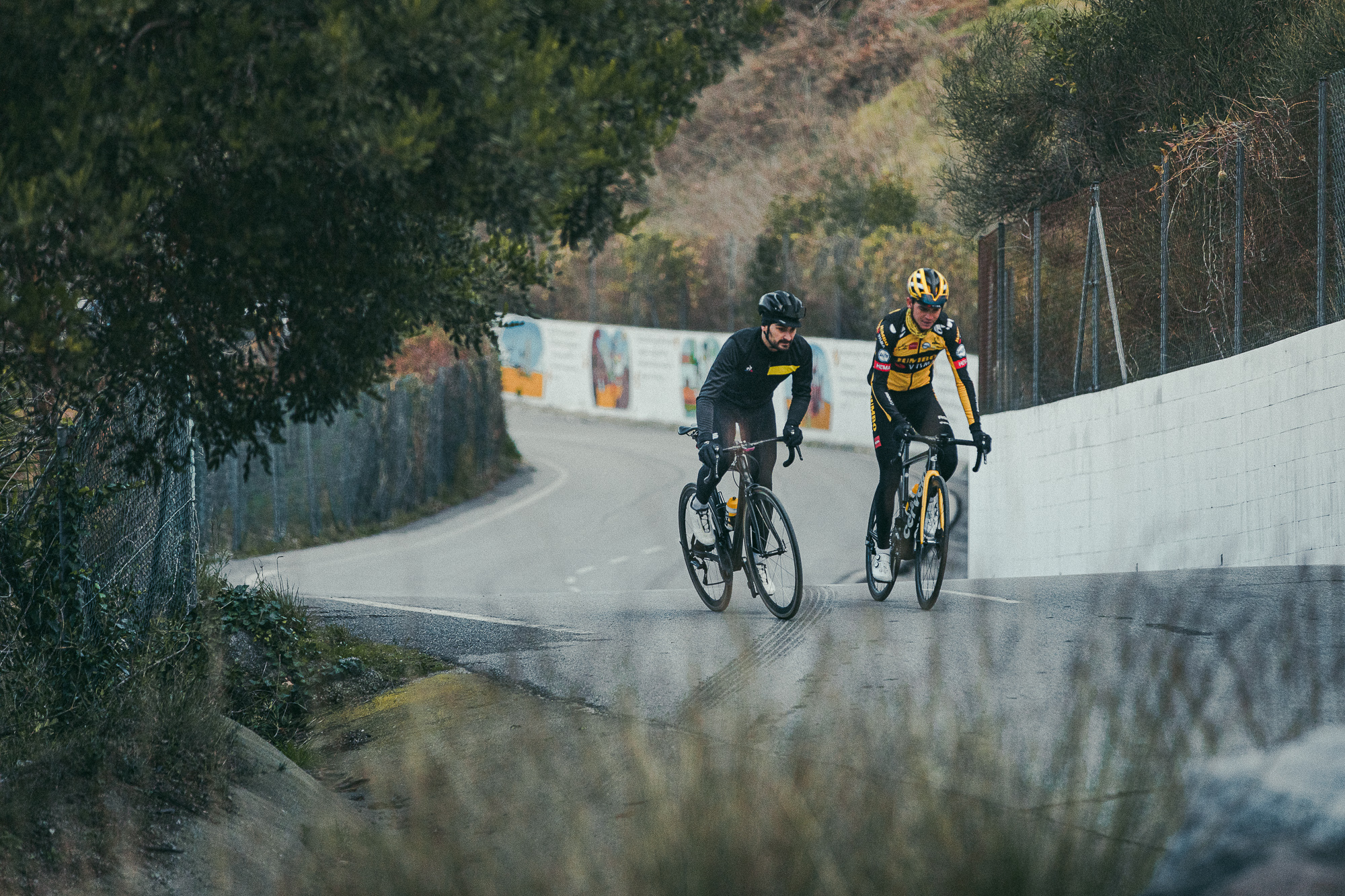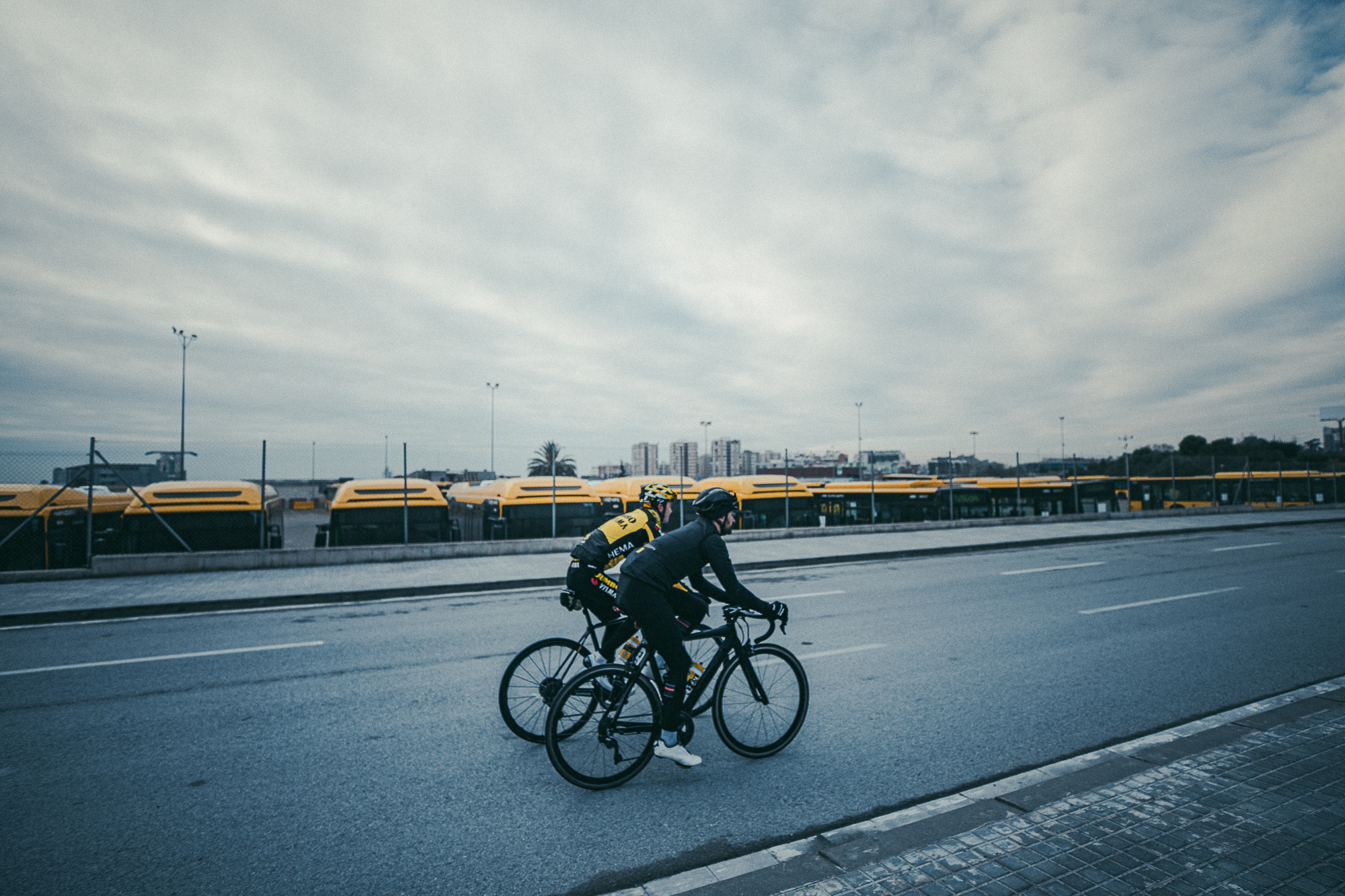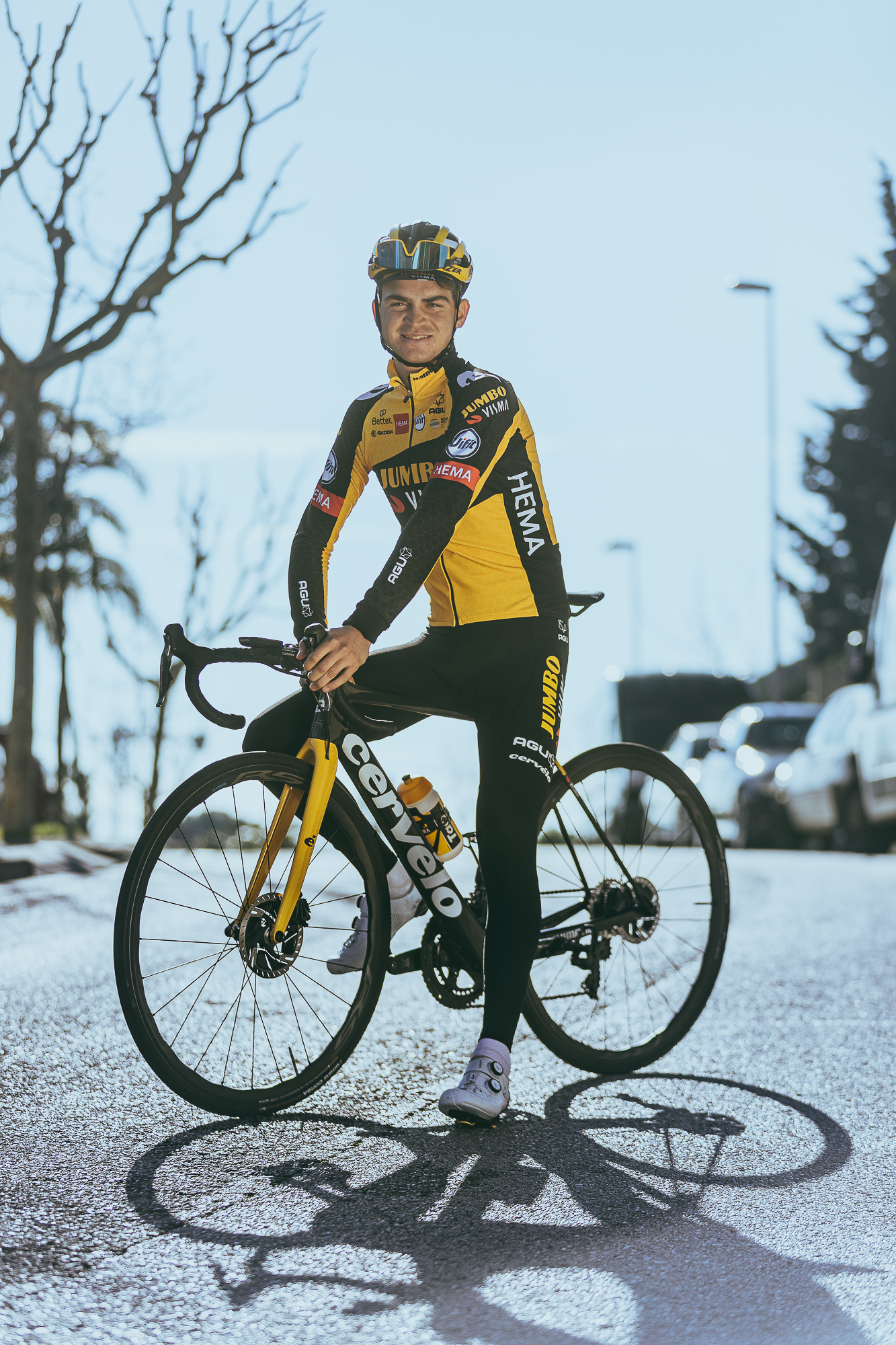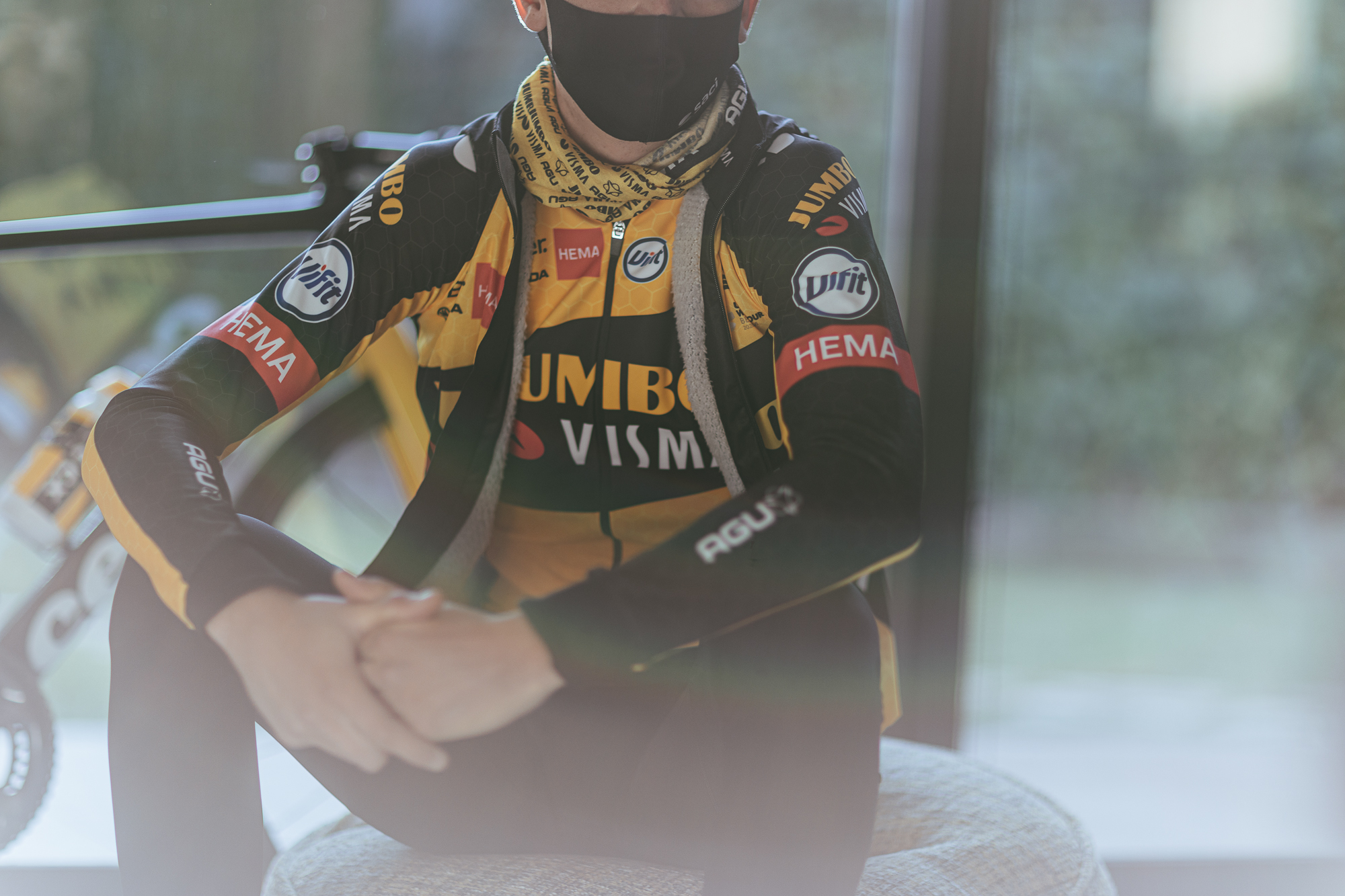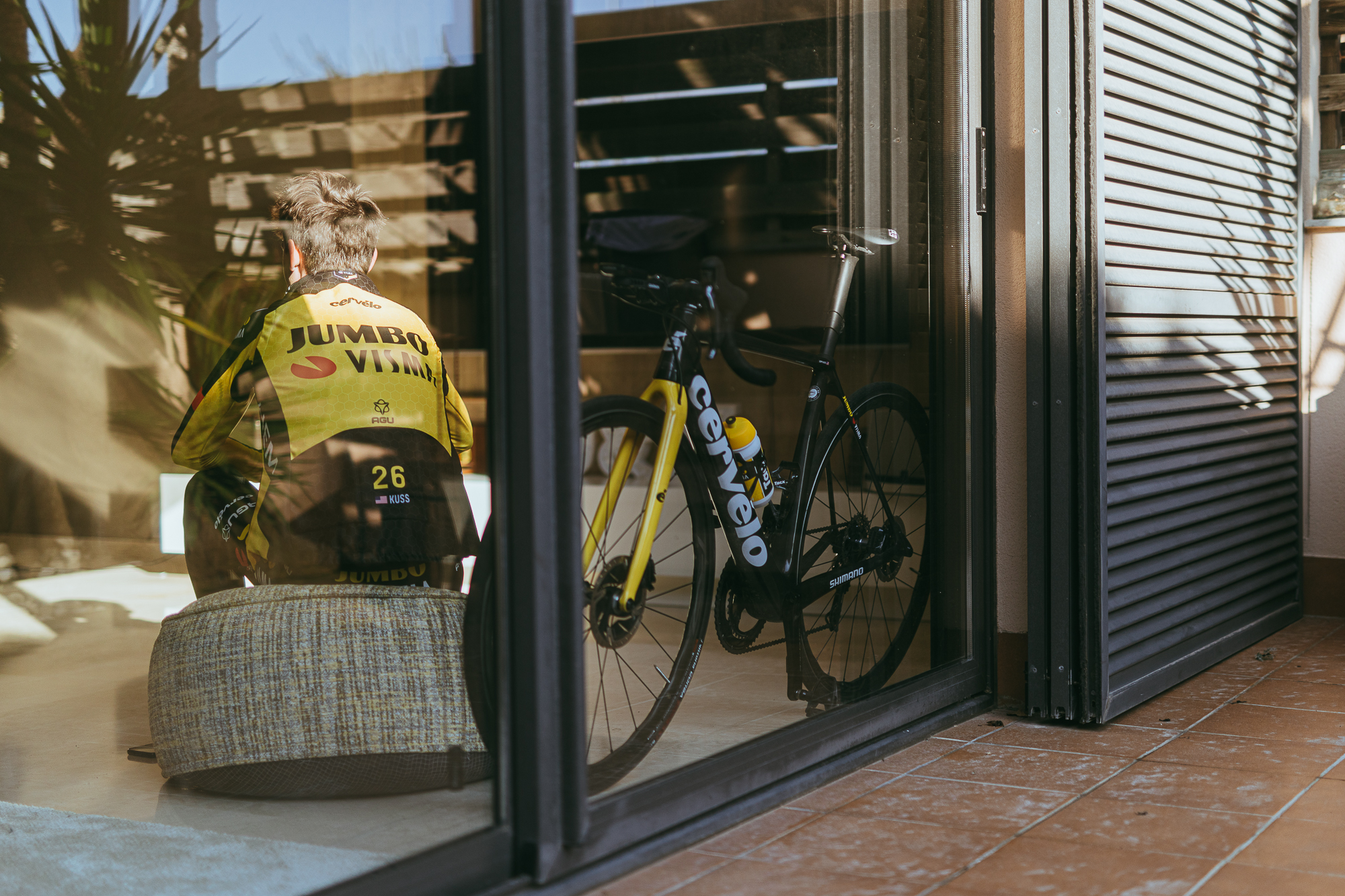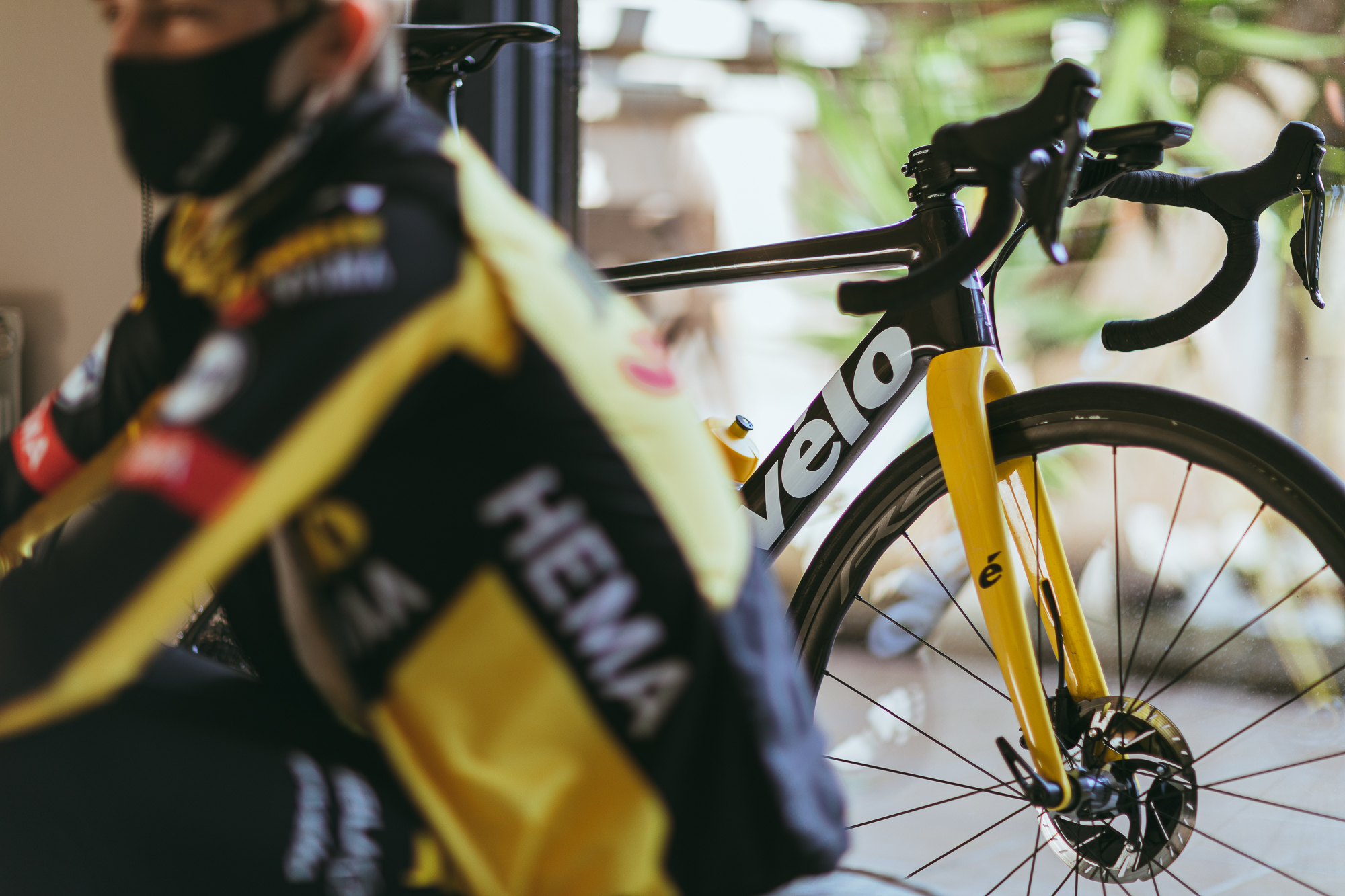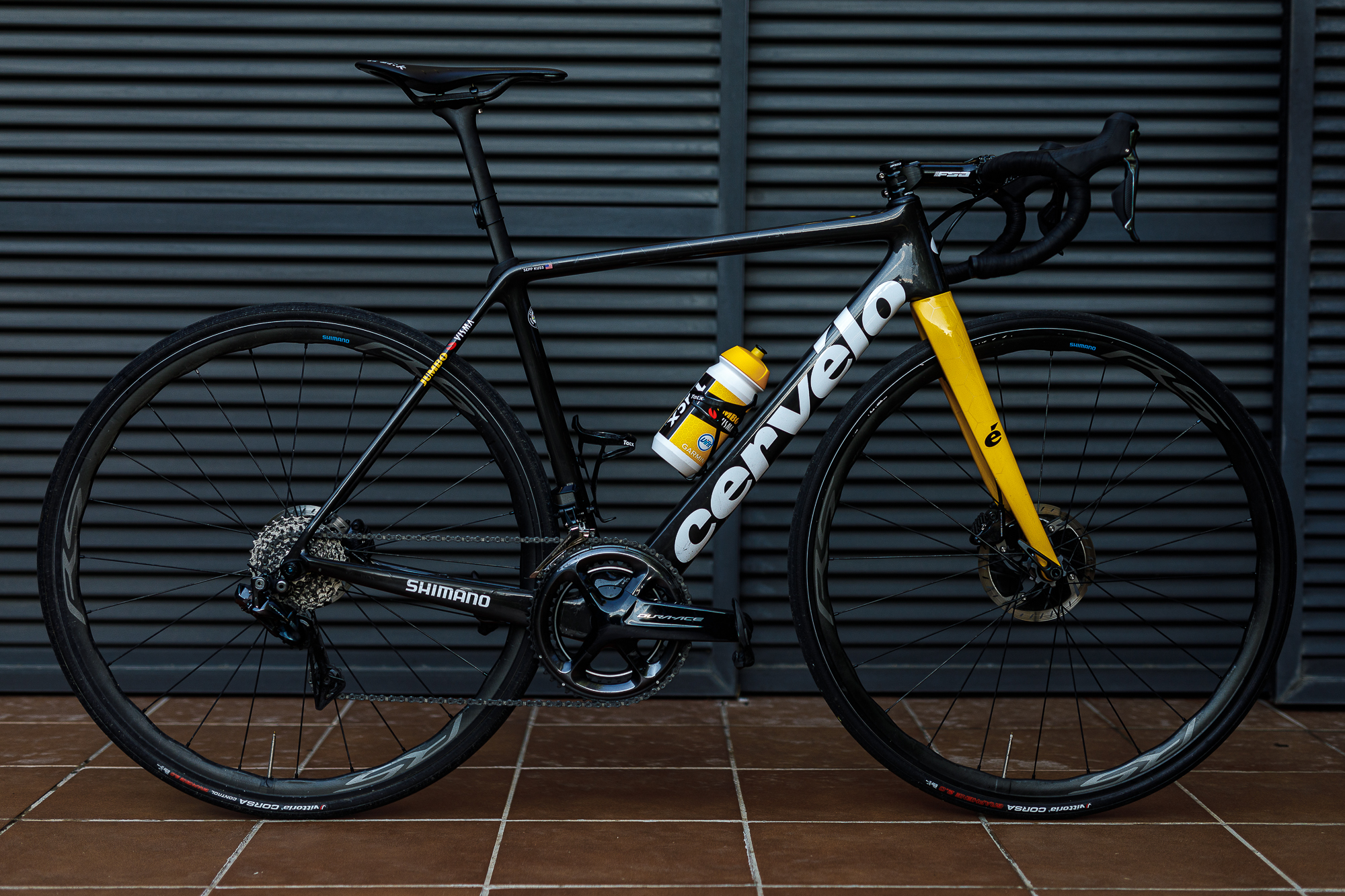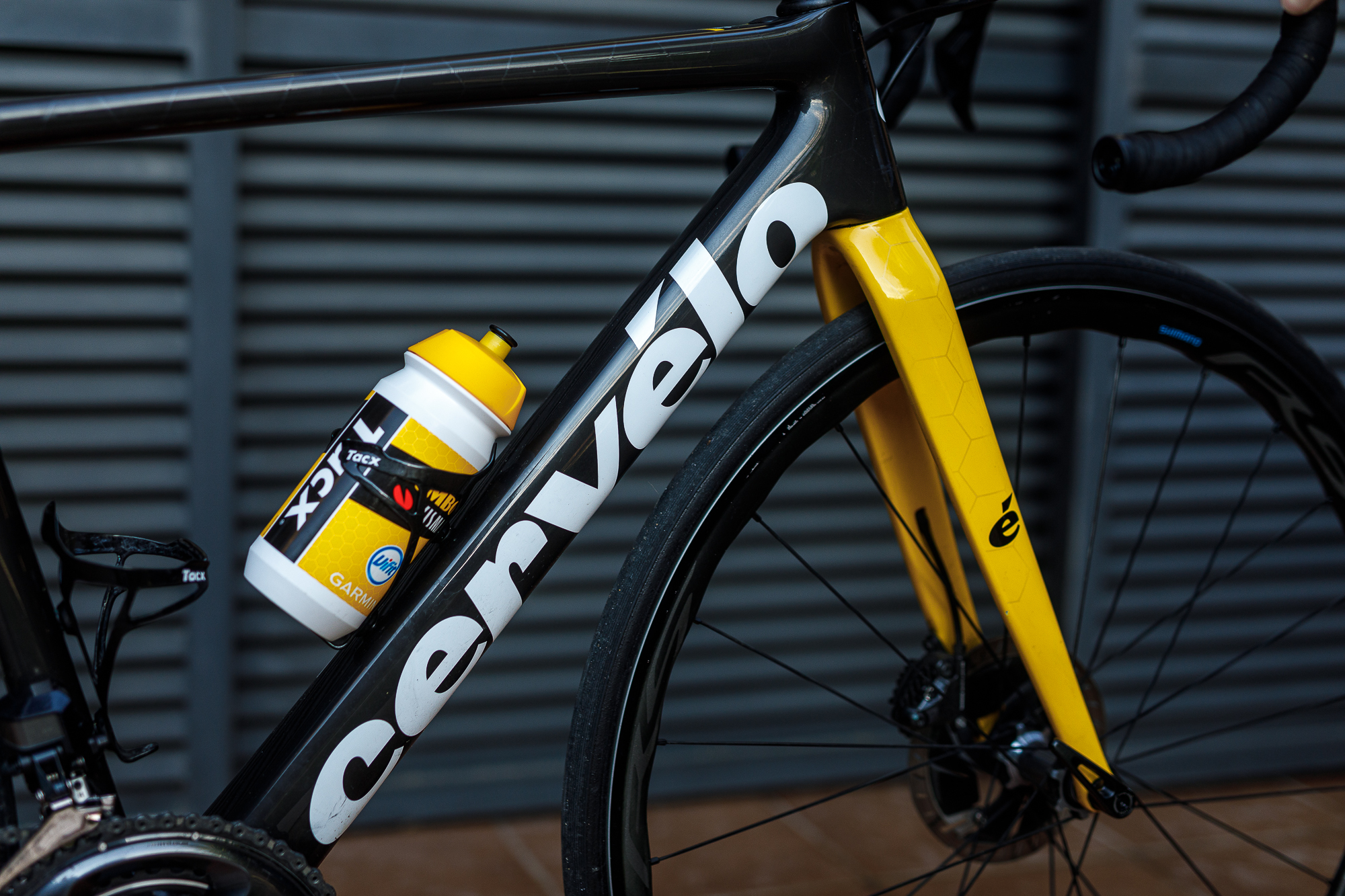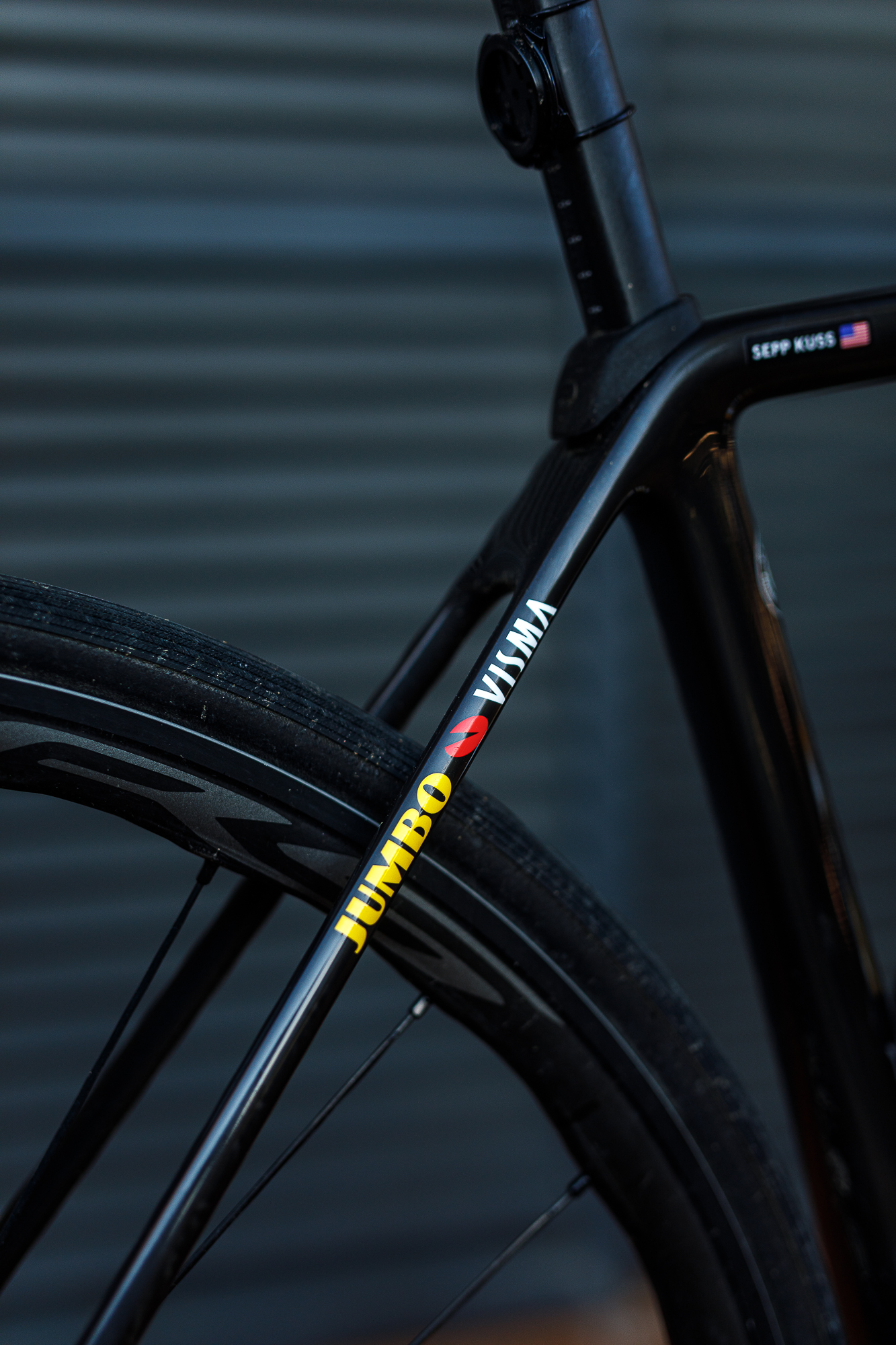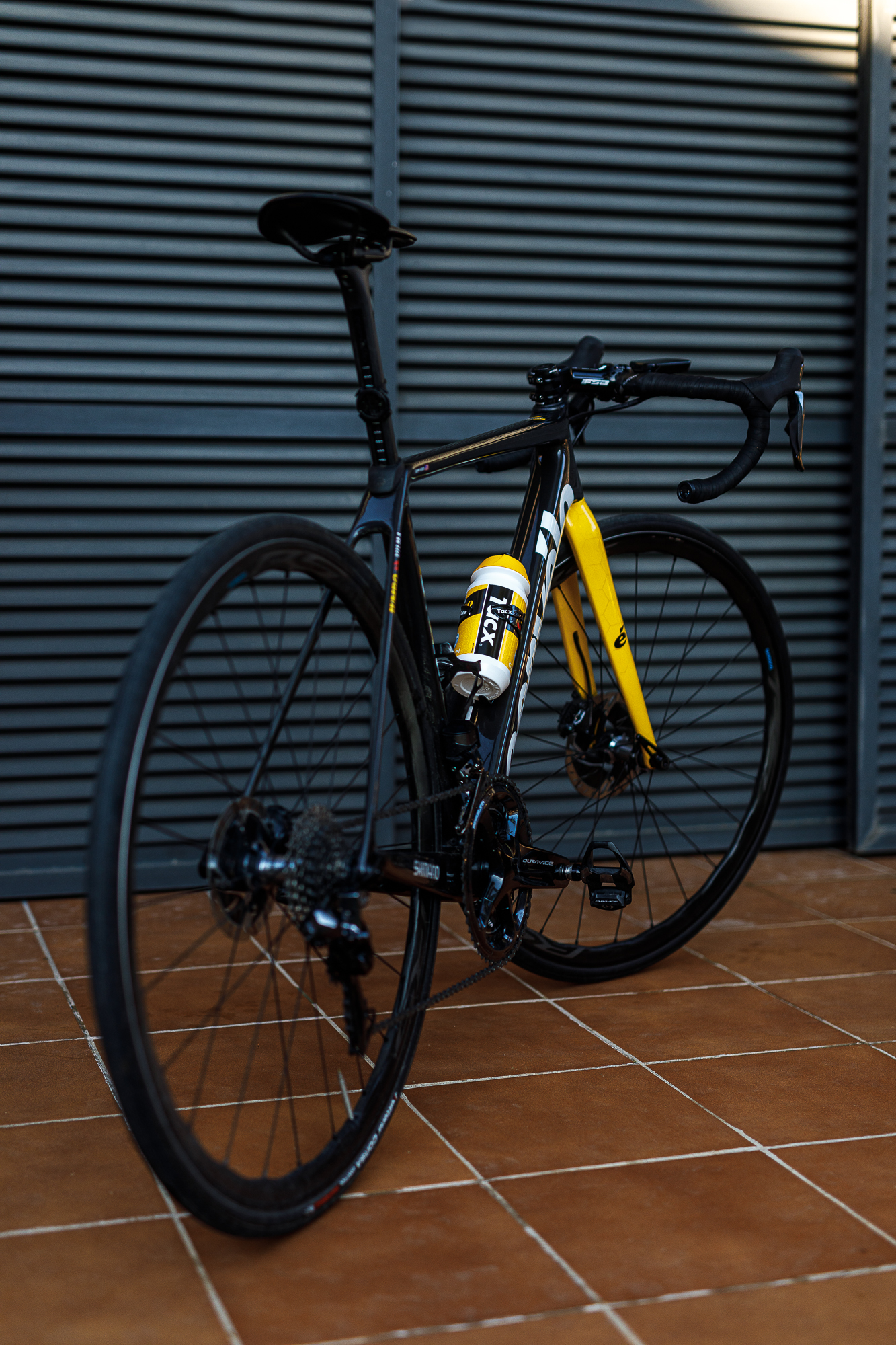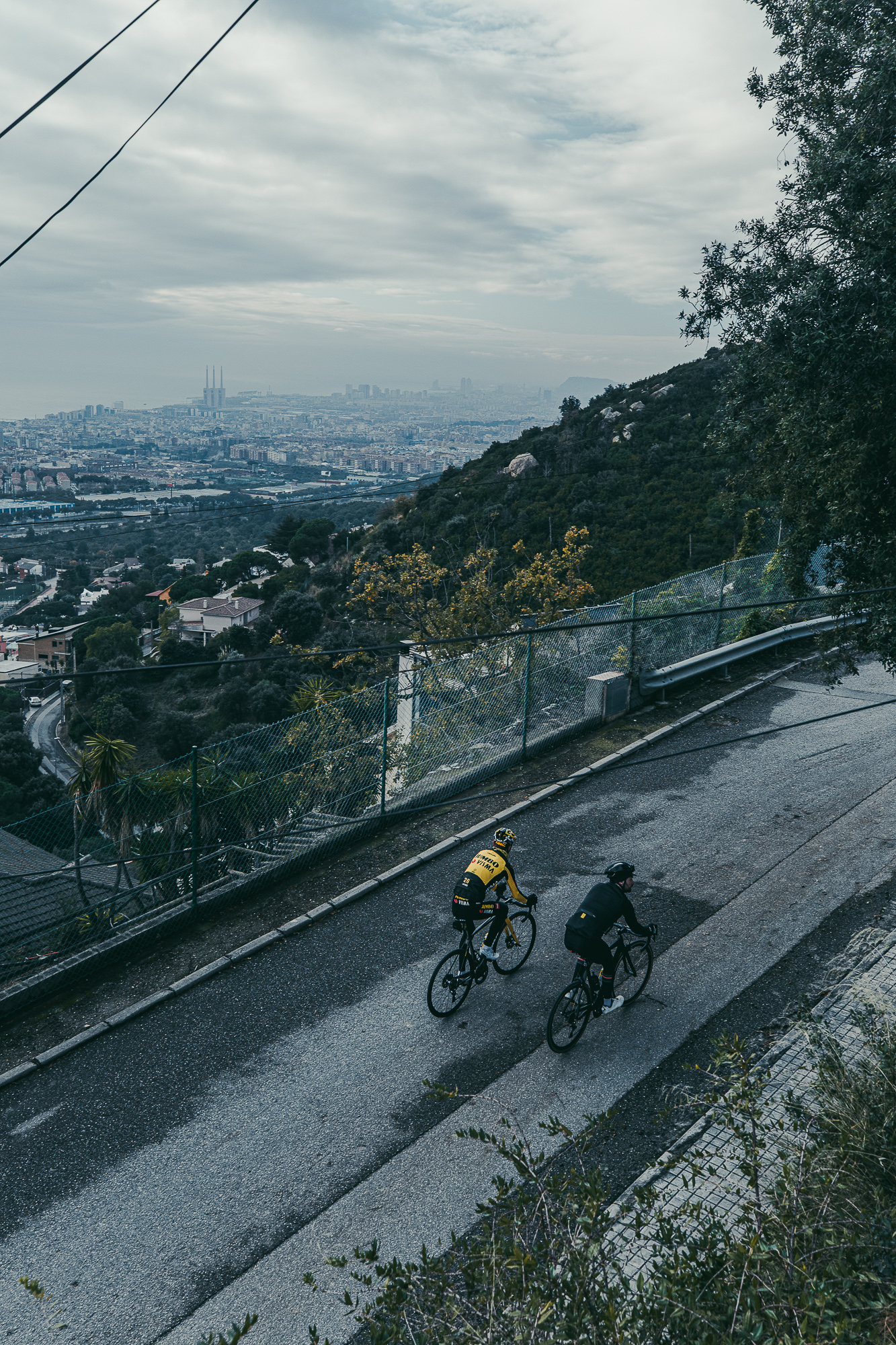The eyes don’t only look. The eyes tell. They speak for themselves. They never lie. In the midst of a pandemic, where masks have become a basic before going outside, the gaze has become even more important.
The eyes of the 26-year-old American don’t lie. His passion for the bike is at the same level as his passion for life. Without false pretensions, Sepp Kuss is getting ready for his fourth season in the Pro Tour.
Surrounded by the best in the world, he’s still learning without forgetting that, 3 years and a half ago, he was still competing as a semi-professional in his hometown.
His roots already foreshadowed an idyll within the sports world. Son of the US Olympic ski team coach, but it was his mother the one that introduced him to the world of cycling. As a publicist graduate, and quoting David Ogilvy, he knows that “Where people aren’t having any fun, they seldom produce good work”. And that’s what motivated him every day. Something as simple as a gaze. Having fun.
Let’s go to the beginning of everything, Sepp. Who are you and where do you come from?
I was born and raised in Durango, Colorado, there it’s normal to do every sport. For me, I grew up skiing, mountain biking in the summers, kayaking, rock climbing, everything. Until I was about 17 skiing was my main sport and I used cycling in the offseason just to stay in shape. As years went on I realized that the time I was spending on the bike was more enjoyable for me than the time I was spending on the skis, so then I decided I wanted to focus more on cycling, which was mountain biking at that point, and yeah, it went from there.
When did road cycling begin then?
Even when I was mountain biking I was interested in watching road races, but I never had any opportunities to start road racing on teams or things like that, and then when I went to university, in Boulder, it’s more of a road biking town compared to Durango so, there I was more exposed to the road biking scene and that’s when I had more opportunities to try road biking on amateur teams.
Let’s talk about your university years. In what major did you graduate?
In advertising.
How many languages do you speak, by the way?
English and Spanish and a very little bit of German, and a few words in Dutch of course.
Was it difficult to manage studying and cycling?
At the time I didn’t think about it too much because I never imagined being a professional, and I enjoyed having both lives and for me the time I spent in university was the highlight of my life, doing different things, meeting a lot of people, having a lot of fun… but like I said, it was different because I never had my mind switched on cycling so much. It was my passion, I loved cycling but I never said “I can’t go out to this party this weekend because I have to train” it was like, whatever I don’t care, I was just enjoying life and cycling was part of that and being a normal human being was also a part of it too.
Then, at what point do you realize that cycling could become your job?
I think when I started with Rally Cycling Team, before that I had a few decent results in amateur races and they signed me. And immediately with them, I progressed really fast and I thought, “okay maybe there’s some talent here that I should pursue”.
Did you have any idols or referents at that time that you looked up to?
For me, they were mostly from Mountain Biking, on the road I guess at that time I didn’t really trust it. It was another time but I was always entertained by them.
Maybe that’s why you were not afraid of anybody in the bunch.
Yeah. I enjoyed the history of cycling and I like knowing about the different races, different climbs… and in terms of the riders I have respect for the big riders. But at the same time, everybody is trying to do their job and do their best. Everybody is only human.
Let’s go back three years. California Tour of 2017. There, something changed for you, isn’t it?
Looking back at that point I really didn’t know much about road racing, how to really race, how to move into the bunch, the tactics… In that stage I won, there were 10 guys left and I was still there, with all the big names like Majka, Gesink, Bennett, and I realized “What am I doing here?” After that I thought “Maybe I should keep pursuing this because I can be with some of the best guys”.
You didn’t know how to race, how to move, so what was that learning process like?
It was just learning from people that are more experienced, not being afraid to ask questions, always looking after every day “What did I do wrong?” “How do you do this?” I was never afraid of asking the silly questions that somebody that had been racing for 10, 20 years would be obvious to. I would be like “How do you get bottles from the car?” or “How do you ride in the crosswinds?” Things that I didn’t learn when I was young.
And suddenly, the Jumbo-Visma Team appears. How do you remember that change?
For them, cycling is a religion and you can see it in the way they race, they always know where to be in the bunch, they know how to handle the wind… for them it’s more of a way of life than it was for me growing up, so being on a dutch team is one of the best teams to learn on because they know all the little things that make a big difference in cycling. And they are really easy people to speak with and they are honest people that you can get advice from.
Let’s jump to 2018, Tour of Utah. That’s where we all met you… Were you expecting the level you achieved there?
Not so much, because at the beginning of that year I was struggling so much in my first year in the World Tour and I was okay mentally but the races were too hard physically for me. I came back home, to Colorado, for a few months and I trained really, really hard. I knew Utah would be a perfect race for me because it’s at high altitude, it’s not quite as nervous as the ones in Europe, so it suits me a bit better. After the second stage that I won, I felt really amazing, so that was a unique experience because when you have that much confidence it’s a really nice feeling.
And with that famous celebration, that you don’t see much in road cycling…
Yeah, it’s one of the great things about cycling, it’s such an interactive sport and the fans can be so close to the riders. My best memories of racing in Spain, for example, are the fans, how excited they are on the climbs, you hear this noise around you all the time, it’s special, and you think “All these people are here to encourage us”.
Let’s talk about climbing. Is it genetic or is it something you’ve worked on?
First of all you have to enjoy it. It’s kind of a pain but it’s also a flow, some people don’t find the flow when they are climbing. For me, I think it’s special when you’re the first on top of a big climb or a mountain, and that is something that gives me the motivation to climb.
The previous moment to the attack, those first meters attacking. Can you explain it in words?
It’s difficult. It’s a feeling. It’s kind of a gamble, you have to know when it’s the right moment but that is also what separates the people that win the races from those that don’t. They have the instinct. It’s adrenaline, and you have to reassure yourself that you have to keep going, because if you hesitate then you can’t make the gap, so you have to commit. It’s always in your mind and you have to convince yourself “They can’t catch me, they can’t catch me”. If you look back and you only put 80% then maybe it’s not enough.
Let’s talk about the present. Do you feel like this is an important year for you? Let’s talk about your 2021 plans.
As a starting point it’s a good area to see how I handle the idea of going for the GC and later in the year maybe in La Vuelta I’ll have more chances. But I don’t think I need to be going to a race where I’m the only leader. As long as I have the opportunity to try, that’s enough for me.
What do you think you should improve to get to the GC?
I think the TT is the most workable aspect just because I hadn’t worked on it that much before, but there’s a lot I can do to improve just a little bit and if I can have it be less of a weakness then that’s great. Also just handling every day, making sure I’m not caught behind gaps and just managing the stress of the stages where you have to be really focused… I think every year I get better at that.
If you talk about getting into the GC there are a lot of names that you have to fight against. How do you see cycling in the future? The Pogacar, Evenepoel, Van der Poel, Bernal, Van Aert…
Now the training and everything is so advanced that young riders that are 18- 20 years old can already be at such a high level. Every year from now on it’ll keep going like that, with riders that instantly make an impact. We also don’t know how much room for improvement they have from where they are now. There are so many young riders that don’t have fear of attacking.
If we look back on 2020, it has probably been one of the weirdest years for everyone. How has it been for you?
For me, it was okay because I didn’t worry so much about racing or training super specifically, I just rode because I like riding. It was definitely unpredictable because you put in the training but you don’t know for certain if all the hard work you’re doing will be worth it in the end. For example a week before the tour they could say, “sorry we can’t do the race” and all the sacrifice you made, it’s not for nothing, but it’s not for the race. But just because we weren’t racing I wouldn’t take a year off of training just as hard.
This year it must have been difficult to race without an audience…
It goes both ways, in a way, it’s nice to have peace and quiet so you can concentrate and there are not people running dangerously on the road and you always have space to ride. But at the same time, it takes away that emotion of the race and they definitely give you an energy boost. Overall I would rather have more fans than less.
Let me ask you about 2020, about the last dinner in France after what happened with Primoz and Tadej. How do you remember it?
It was interesting because we were satisfied with what we had done but it was also a different feeling because in all our minds we imagined it differently. And you never convince yourself completely that you will win. When everything is going your way you can at least start to think about it. That makes it a bit of a strange thing.
If somebody looks at your Strava profile, they will see that you try to avoid main roads. Is that something you plan ahead of?
I like to explore whenever I can, if I have a long ride I always wanna go somewhere completely different, to go to the furthest point possible. I like to get out of my comfort zone and try the hardest climb I can in the area. It makes the ride go by so much faster when you go somewhere completely different and get lost, in a good way.
If your Durango friends came here, what zone you usually ride would you suggest to ride?
I really like riding in the Berguedà area, it’s a really beautiful area, you can see all these really small towns tucked away in the mountains, in the hills, it’s really nice. But overall anywhere in Catalonia is really beautiful because there are so many hidden areas, it’s really diverse.
Let me ask you about your new Cervélo. First impressions, sensations…
It’s really stiff, you feel the power go forward and with the disk brakes they made a bike that’s light. I really like how it handles the descends, it’s a really stable bike but not slow. I like bikes where you feel every movement but it’s also secure.
Do you have any strange habits, some personalization in the bike? Something special?
I’m quite normal. I have a bad habit of adjusting my saddle position a lot. This year I need to find my position and stick to it. In a race, your muscles are always changing. Sometimes my body feels completely different than another day.
I read in a magazine a sentence that was “The cyclist who eats burgers”. Is that true? Or do you have a special diet?
Nothing too special. I really like food and I will never say “I’m in the season I can’t eat cake” or “I can’t have a beer”. Everything in moderation. After a race, I will have a beer just to relax and get some carbs in. Nothing is forbidden. If we have the team chef I can get the right amount of everything in, but at home I just enjoy eating like a normal person.
Last one. How do you see yourself 10 years from now?
(Thinks) I will be 36… as things are going now I hope to still be cycling as a pro, or not, either way, I’ll always be riding a bike in some way. Hopefully, I can still have the same motivation, otherwise, it’s too hard of a sport to keep pushing. Hopefully, at that point, I can look back and be happy with what I’ve achieved or what I’ve done, not necessarily only in results, but experiences and living the life I guess. It’s a nice job, a nice way of life.



